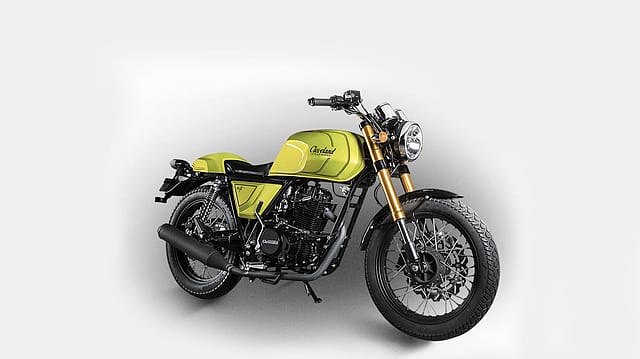Barely made in USA
ADVERTISEMENT

Indians love foreign brands. Hence even domestic apparel makers use Anglicised or Latin names for their products. But does the same apply to automobiles? Will a feeble link to a brand across the seas convince Indians to buy a bike? The people behind Cleveland CycleWerks India (CCW) hope so.
Cleveland was among a handful of bike makers to mark their entry into the Indian market at the Auto Expo in Greater Noida. The company showcased 5 retro-inspired models, three of which it hopes to sell in India this year.
But here’s the thing. This isn’t a storied bike maker entering India. Instead, this is about an Indian company wanting to enter the market using a foreign brand. Here’s the story: The five bikes that were on show were brought here by Laish-Madison Motor Werks, a Hyderabad-registered company. Cleveland is among the many small custom bike makers in the U.S., where a subculture of motorcyclists prefer customised bikes over mass produced ones.
But Cleveland bikes in India will be different. Instead of being custom-built, they would be assembled at a plant run by Laish Madison in Pune. The parts for the bikes would be made in China, at a factory, CEO Pranav Desai claims, is “owned by Cleveland Cycle Werks” and not outsourced. “The design and product development of the bikes would be based in the U.S.,” he says.
January 2026
Netflix, which has been in India for a decade, has successfully struck a balance between high-class premium content and pricing that attracts a range of customers. Find out how the U.S. streaming giant evolved in India, plus an exclusive interview with CEO Ted Sarandos. Also read about the Best Investments for 2026, and how rising growth and easing inflation will come in handy for finance minister Nirmala Sitharaman as she prepares Budget 2026.
Desai says the plant, to be operational soon, has a capacity to assemble 35,000 bikes a year. He expects to sell 5,000 bikes in India by FY19.
When asked if this is a case of Laish-Madison going out and seeking a Western brand to enter the market, Desai was hesitant. “I would rather say it is a coincidence of we looking for a partner, and CCW wanting to explore the Indian market,” Desai said.
Competitors says this model, where a distributor controls the product, would not work well in India. “Buying a bike is different from shopping for clothes,” says Rajeev Mishra, CEO of UM Lohia Two Wheelers, a joint-venture between U.S.-based UM International and India’s Lohia Auto. UM, since 2014, has been assembling cruiser bikes in India through this partnership.
Mishra, says, in contrast, a JV allows UM to have control of the product and distribution. “This also gives customers an assurance that this is not a fly-by-night venture.” To be clear, UM makes bikes through contract manufacturing in rest of Asia, though Mishra says it is an accepted practice in the auto sector. “Fiat makes cars at Tata’s plant, Suzuki and Yamaha bikes in some markets in South America are made at the same factory,” he said. “Assembling the bike at this or that plant isn’t a factor. Ultimately, it is UM that is selling the bikes to the customer. It is not just a sticker on the bike.”
Desai, however, said the initial response the company has gotten through social media campaigns have been encouraging and is positive of the venture.
